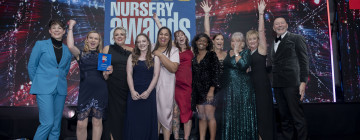Spin Doctor vs. Guardian Angel….What is an ethical approach to PR?
Public Relations is sometimes perceived as ‘spin.’ It is seen that practitioners bend facts and information in such a way to benefit a client. But through facilitation of two-way communication and utilising new digital platforms for a more transparent age of information sharing, are PR practices actually helping businesses become more ethical?
Earlier this year, Donald Trump’s advisor Kelly Anne Conway was condemned by the Public Relations Society of America (PRSA) for tarnishing all communication professionals when she publically ‘span’ the story of Trump’s inauguration turnout as ‘alternative facts’(read more here). The press were hot to debate the issues surrounding ‘alternative facts’ and naturally, as an industry heavily associated with spin and reputation, the Public Relation’s profession was dragged under scrutiny. Unfortunately, with communication issues such as ‘alternative facts’ and incidents where organisations have covered-up information (such as the VW emissions crisis) gaining prolific media attention, the ethical actions of the PR industry can go unnoticed. However, PR is a profession derived from a background deeply rooted in theories of ethics and communication based mainly on power balance and moral outcomes.
Two Way Communication & Power Balance
Theorists such as Habermas believe ethical actions are credited through the access to platforms where two way communication can be facilitated. Audience feedback for a business is a powerful communication tool not only for ‘balancing power’ through access to equal discussion but also can define a business’ targeting strategy making the organisation more customer-centric.
Today you can see PR Services that clearly make feedback to an organisation available to the publics, predominantly through digital media platforms. As mentioned, the feedback tools and techniques used in Digital PR naturally benefit a business through other aspects as well as their ethical stance. PR is a business practice used to build relationships between an organisation and their publics. Yet for the relationship to have any longevity or effect, the publics must feel that the relationship is ‘mutually beneficial’ and a simple way to create this balance of power is through two-way communication.
Throughout all social media channels, you can easily directly message an organisation with any feedback (good or bad) and there is increasing pressure on Social Media PR practitioners to answer these queries with understanding responses 24 hours a day – as is the nature of online communications.
Transparency & Power Balance
With business practices moving online, gone are the days where organisations can ‘cover’ bad publicity or communication issues. Therefore, it is extremely important that businesses offer increased transparency of information to be perceived by the public as trustworthy. Transparency of information through communication techniques can benefit an organisation through reputation and brand management whilst also reducing the risk of crisis.
Dependent of the varying degree of transparency implicated by an organisation, is also the balance of power between them and their publics. Ethical theories such as Grunig’s Excellence Theory, believe complete ethical communication can only be achieved through equal power dynamics.
Corporate Social Responsibility
Robert Heath’s rhetorical enactment theory suggests the role of a communications practitioner is to act as a ‘guardian’. PR strategy practitioners are often given the task to create the CSR campaigns to promote and help causes close to the company’s vision, such as Ben and Jerry’s work on sustainability for dairy farming in the US and Kenco’s Coffee vs Gangs campaign in Honduras.
Through PR practices such as CSR, organisations are deemed ethical through how they utilise their position of power to care and nurture society. CSR is a practice often criticised as merely a ‘show-tool’ organisations use to boost their reputation. However, even if the company’s reputation is boosted through their charitable actions, surely this does not take away from the caring actions and work.
Like in any industry, you will get good and bad practitioners as ultimately a person’s moral guidance cannot be centred on practitioner body codes of conduct or what they read at university about ethical theories. An ethical stance is unique to that person and is individually built through a range of experiences. What can be said for the PR industry however, is that the techniques and tools of the trade, if implemented effectively, can open discussion and benefit publics of an organisation through promotion of transparency and power balance.
For information on how Red Tree Public Relations can help your business, please give us a call on 0115 925 5499.



